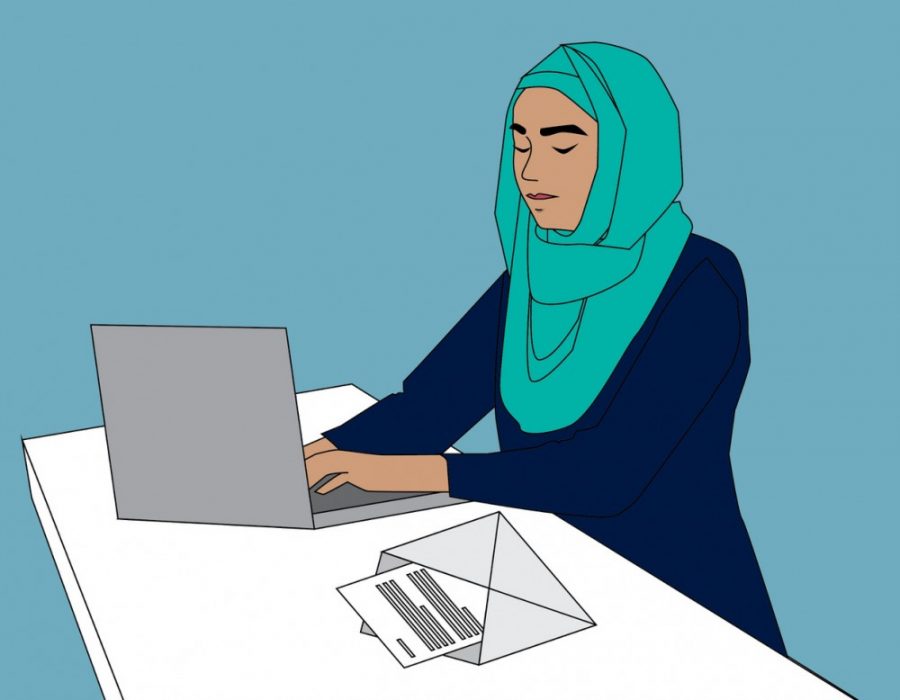In addition to juggling final exams and managing stress, many Muslim students at the University of Minnesota will be fasting without food and drink from dawn to dusk as they observe the holy month of Ramadan, starting this week.
Although University policy recognizes religious observances as legitimate circumstances for making up coursework, many students have said they are hesitant to request accommodations for religious purposes. With this in mind, the Muslim Students Association and Al-Madinah Cultural Center partnered to draft a letter template to help Muslim students request accommodations from their instructors during Ramadan.
“What we wanted is a way for [Muslim students] to have everything written down and take it to their instructors so that they are able to ask for accommodations comfortably and so their instructors can understand the validity of it,” said Sagal Mohammed, a fourth-year student who helped draft the document.
The letter provides background information about the religious significance of fasting during Ramadan, including a description of the process of fasting in Islam. It also includes requests for arranging final exams between noon and 6 p.m. and providing time for prayer and breaking fast, or iftar, which occurs at sunset.
Because many Muslims attend night prayers, called tarawih, and eat suhoor, the last meal eaten at 4 a.m. before fasting begins, Mohammed said the midday time frame for exams seemed to be the most convenient for students. But in the event that exams cannot be arranged ahead of time, allowing students time to eat and pray is important.
Many students find it difficult to concentrate on finals while experiencing the hunger and fatigue that comes with fasting.
“Food is honestly my break from things,” said second-year Ramla Mohamud, adding that studying for final exams will be extra difficult for her. “I’ll be especially thinking about food, and I’ll be really hungry in the library.”
In hope of facilitating accommodation requests, the University sent an email to instructors in mid-March reminding them of the potential need to provide accommodations for upcoming religious holidays and observances, including Good Friday, Passover and Ramadan. The email noted in particular that Ramadan would fall during finals week.
The email read: “As such, you may choose to communicate to your students with an in-class announcement or other means indicating your awareness of the overlap between classes and some holidays, and encouraging students to contact you individually if accommodations are needed.”
Jennifer Reckner, the chief of staff in the Office of Undergraduate Education, said this communication was intended to initiate early conversations about accommodations. However, many students said their instructors did not mention anything about it, in class or otherwise.
Beyond Ramadan, Mohamud said she has never asked for prayer accommodations.
“Asking for extra accommodations if you’re the only person there makes it scarier,” Mohamud said.
Mohammed also said requesting certain conditions from instructors can be daunting. “Some instructors, inevitably, are not as approachable as others,” she said. “Especially in those cases, you don’t want to go through the hassle of even bothering to ask them.”
For Rafat Solaiman, a first-year student, the real problem will be accessing food from the dining hall during the month-long observance. All dining halls are closed by suhoor and most are closed during iftar.
“It won’t be as much of a problem when you’re not a freshman and you get to stay in an apartment,” Solaiman said. “But as a freshman, I’m going to have to find my own food.”
Because Ramadan begins 10 days earlier every year, starting next year it will coincide with classes.
Both Mohammed and Mohamud said when this happens, the most important thing is to create a mutual understanding between students and instructors about eating and praying.
“When you’re sick, you’re not afraid to ask somebody. If you’re on a sports team, you’re not going to be afraid to ask your professor because you know it’s your right to miss class, and you’re allowed to do that, so this should be like that as well,” Mohammed said.

















